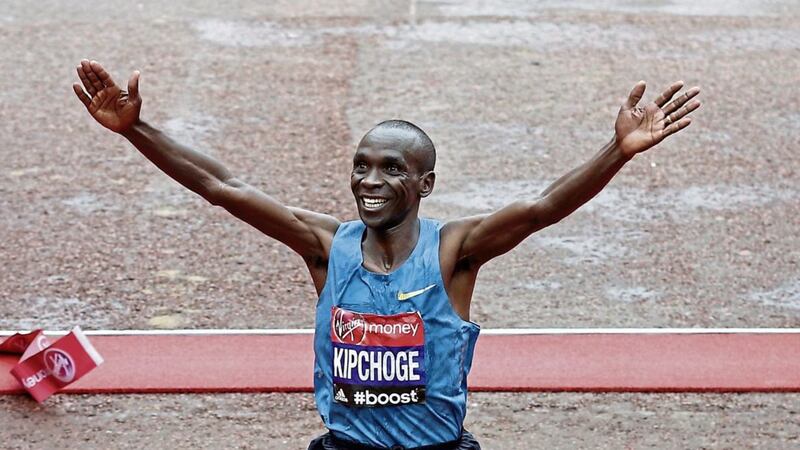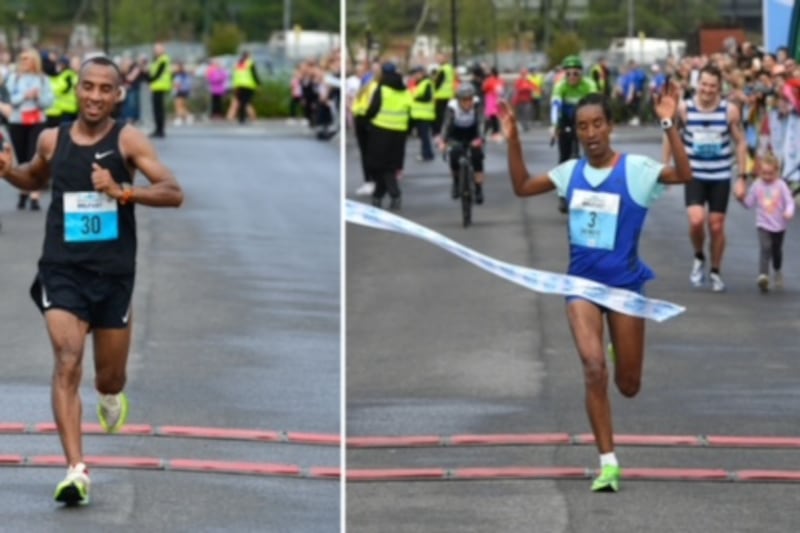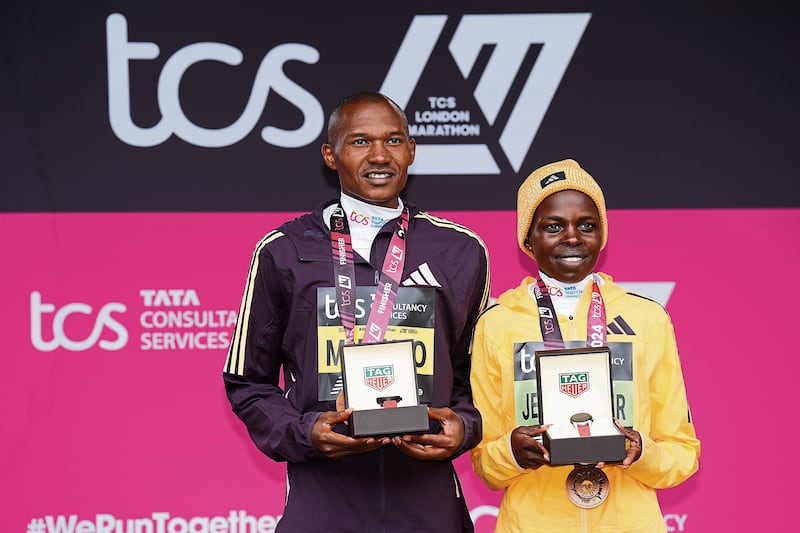THERE is no dip in marathon fever this weekend as Nike stage what could be the first sub-two-hour running.
If successful, this would be regarded as epic a milestone in the history of running as Roger Bannister’s sub-four-minute mile at Iffley Road, Oxford on May 6, 1954.
The three chosen runners for the Breaking2 team are Olympic marathon champion Eliud Kipchoge, half-marathon world-record holder Zersenay Tadese, and two-time Boston winner Lelisa Desisa. The trio will take to the Monza racetrack either tomorrow morning or Sunday, or possibly even Monday, depending on the weather conditions.
Nothing will be left to chance with pacemakers, back-up teams and even what Nike see as the perfect shoes all in place for their attempt on what many regard as an impossible target. But then they said that about the four-minute mile.
The Sub-2 runners have to average under 60 minutes per 13.1 mile splits which many sports physiologists think will be their undoing in that they are going to have to start way too fast. And inevitably that means they are going to ‘bonk’ in the second half of the marathon.
Kenya’s Dennis Kimetto is the current world record holder with a 2:02.57 from Berlin three years ago when he went through halfway in 61:45. However, the fastest first half of a marathon currently belongs to Kenenisa Bekele who went through in 61:11 at the 2016 Berlin Marathon but slowed to 61:52 for the second half. That left him six seconds over the record at 2:03:03.
The Breaking2 team might break two hours this weekend but do not expect to see it repeated at any of the big city marathons any time in the near future.
The Nike attempt, if successful, will be more due to human ingenuity than physiology.






